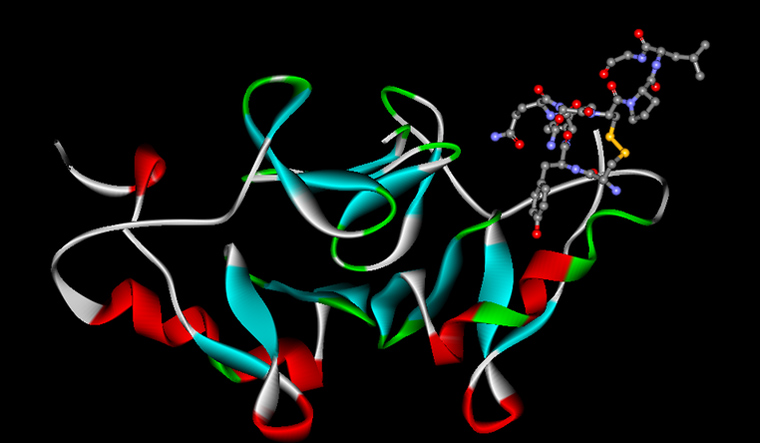Next week, the Delhi High Court will take a call on whether the government can restrict the manufacture and sale of a life-saving drug that is about to go off the shelves soon.
From September 1, the manufacture, sale and use of oxytocin, first choice of drug used to prevent death due to excessive bleeding during childbirth, will be restricted. Following the Union health ministry's order, the drug will be manufactured only by Karnataka Antibiotics and Pharmaceuticals Limited, ostensibly to prevent its misuse, particularly in the dairy industry.
However, there have been concerns among doctors and activists over the shortages that could result from these restrictions. Oxytocin, a neurotransmitter and peptide hormone that causes uterine contractions, induces labour naturally and controls bleeding, is listed in the government's National List of Essential Medicines, 2015, as well as the WHO's model list of essential medicines.
This week, the All India Drug Action Network (AIDAN), an NGO, filed a PIL in the Delhi High Court, asking for the order to be set aside, given the serious implications of such a move.
On Thursday, the matter was heard in the court, and the government was asked to respond. The next hearing is scheduled on August 24, where the PIL will be heard along with a writ petition filed on the government's order by pharmaceutical major Mylan.
In their petition, activists from the AIDAN have pointed out that oxytocin is a critical drug in the management of post-partum haemorrhage (PPH) or excessive loss of blood following childbirth. PPH is the cause of 38 per cent of all maternal deaths in the country. The drug is also used in induction and augmentation of labour. Activists are also questioning the capacity of KAPL—a public sector unit—“to single-handedly produce an emergency drug for the entire country, and ensure its supply all over India while maintaining a cold chain”.
“A slight disruption or problem in the functioning of the supply chain would mean unnecessary maternal deaths,” according to the AIDAN petition.
The petition also raises the issue of price of the drug—currently, oxytocin costs range from Rs 15-20. As states procure in bulk, it costs them Rs 2-5 for a 5 IU ampule. However, the KAPL price is likely to be around Rs 16, and thus the order would create a monopoly for a single company. Activists also highlight how this restriction would disadvantage small private sector facilities that regularly procure the drug from the retail market.
A day after the health ministry issued the order on June 27, the WHO released a statement on a study that showed that the “heat-stable” carbetocin could be used as an alternative to oxytocin, to prevent maternal deaths due to post-partum bleeding. However, activists say that carbetocin is not available in India at the moment, its efficacy has not been proven yet, and it is likely to cost more, too.
Earlier this month, the health ministry had held a video conference with state officials to address concerns and assure them that there would be “no shortages” of the drug after the restriction came into effect on September 1. States have been advised to place their orders with KAPL in time to avoid any shortages and raise awareness on the restriction order. Ministry officials also asked KAPL to ensure a "robust supply chain".


